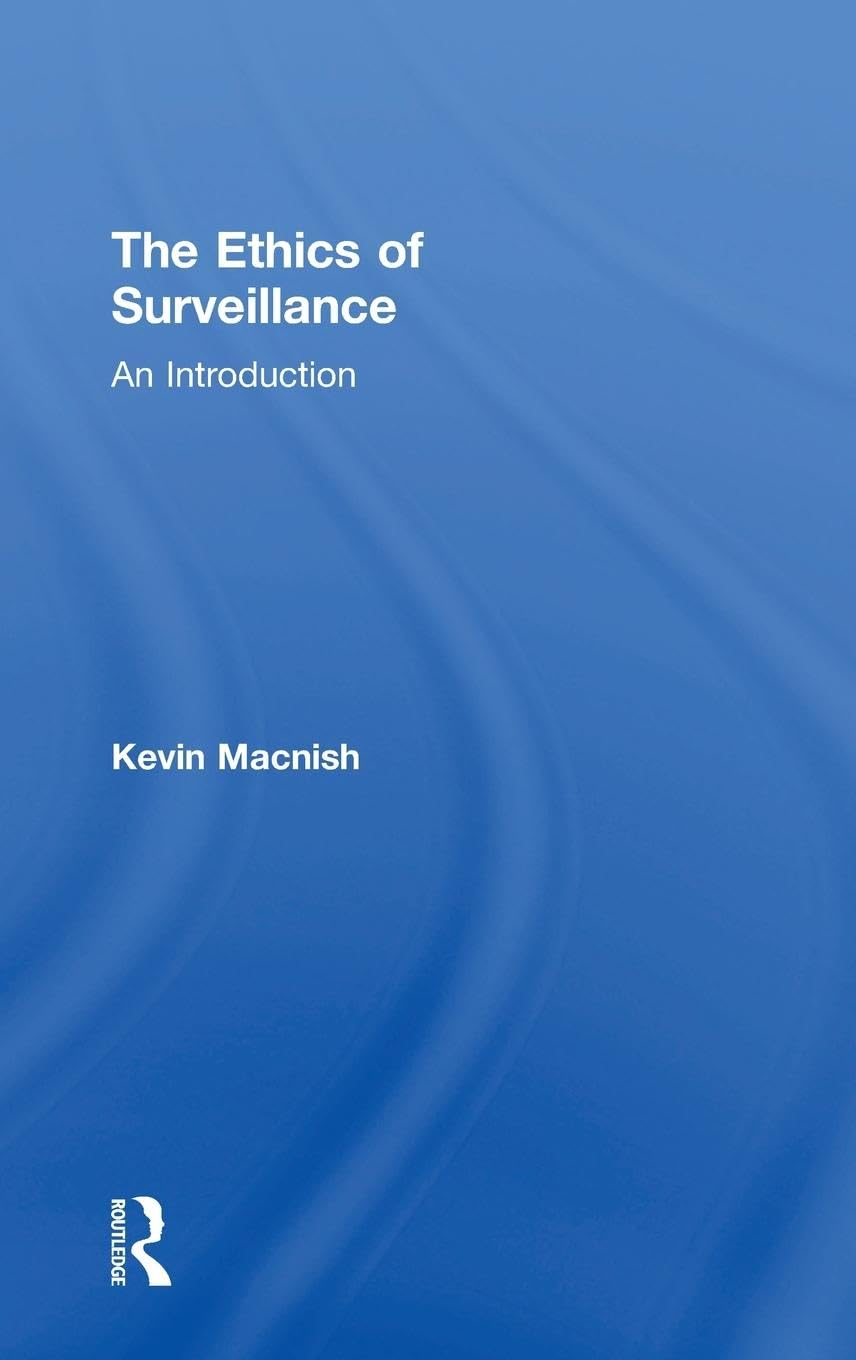The Ethics of Surveillance: An Introduction
The Ethics of Surveillance: An Introduction is backordered and will ship as soon as it is back in stock.
Couldn't load pickup availability
Genuine Products Guarantee
Genuine Products Guarantee
We guarantee 100% genuine products, and if proven otherwise, we will compensate you with 10 times the product's cost.
Delivery and Shipping
Delivery and Shipping
Products are generally ready for dispatch within 1 day and typically reach you in 3 to 5 days.
Book Details
-
Author: Kevin Macnish
-
Brand: Routledge
-
Edition: 1
-
Binding: Hardcover
-
ISBN: 9781138643789
-
Number of Pages: 215
-
Release Date: 28-07-2017
-
Languages: English
-
Package Dimensions: 9.0 x 6.4 x 0.7 inches
About the Book
"The Ethics of Surveillance: An Introduction" by Kevin Macnish offers a systematic and comprehensive exploration of the ethical issues surrounding surveillance, a subject that has become increasingly relevant in our modern, data-driven world. The book tackles the moral complexities and dilemmas posed by surveillance practices across various domains, from state security to corporate espionage, to the role of privacy in public spaces.
Macnish addresses important ethical questions, such as:
-
Is it ever acceptable for a state to spy on its allies or citizens in the name of national security?
-
To what degree should governments be allowed to intrude into their citizens' private lives for the sake of safety?
-
Can corporate espionage be justified under certain circumstances?
-
What are the ethical issues surrounding the use of big data by corporations, governments, and other entities?
-
How far should journalists go in their pursuit of information and the right to know?
-
Is it reasonable to expect privacy in public spaces, and where should the line be drawn?
-
Is it justifiable for a parent to read a child’s diary or monitor their activities?
With clear philosophical insights, the book examines these pressing issues, offering readers an understanding of the ethical challenges involved in surveillance practices. Featuring real-world case studies, it brings the theoretical aspects to life and provides students in fields such as applied ethics, technology ethics, privacy, security studies, journalism, and human geography with a comprehensive introduction to the subject.
"The Ethics of Surveillance" is an essential read for anyone interested in understanding the moral implications of surveillance in contemporary society, and it invites readers to critically engage with the balance between security, privacy, and ethical responsibility.





